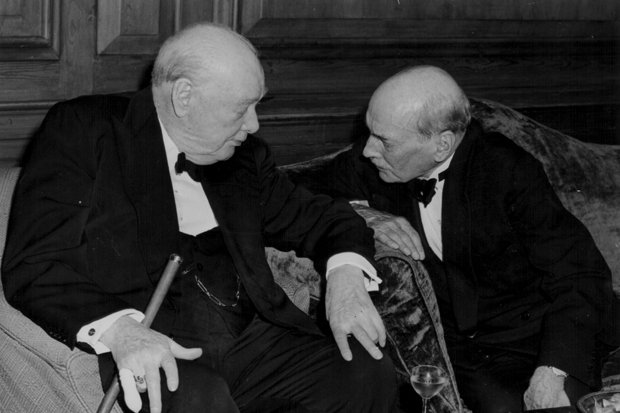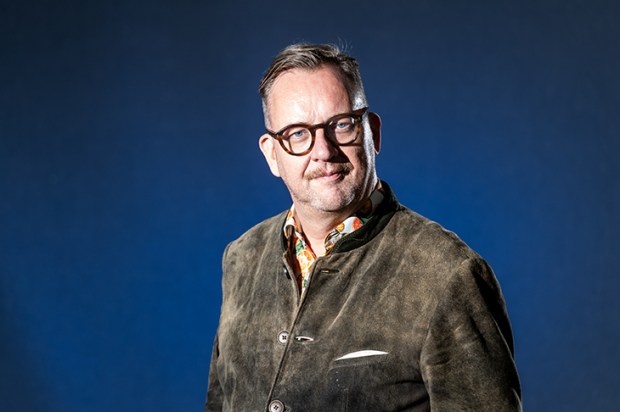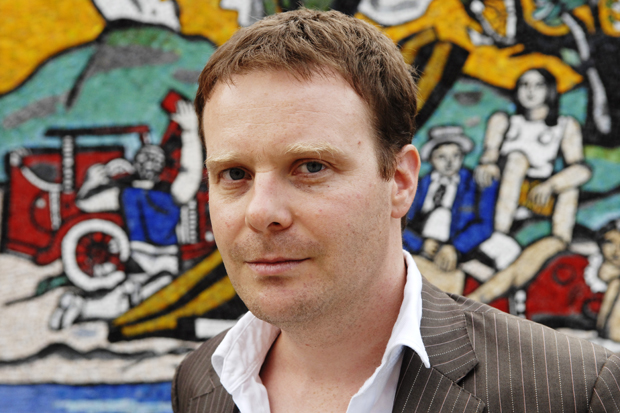Jeremy Clarkson has been getting it in the neck from Twitter’s (I was going to say) tricoteuses — but social media is both thicko mob and gleeful, literal-minded public executioner. A couple of weeks ago it was George Galloway; and the week before that — oh, I can’t remember. I had a theory about 21st-century shame before I read Jon Ronson’s book — namely that it passes quickly. A Profumo would atone for a lifetime; a Huhne leaves jail to book deals and newspaper columns. The internet fire burns more intensely but turns to ashes faster. Yeesh, was I wrong.
Ronson thinks it all started well. He writes approvingly of the early days of Twitter, when we shamed bad people for good reasons: ‘When the powerful transgressed, we were there,’ he writes, sounding a bit like a cybernat, or like Russell Brand. ‘Hierarchies were being levelled out. The silenced were getting a voice. It was like the democratisation of justice.’ The glorious examples he chooses include the shaming of the Daily Mail, LA Fitness, Donald Trump and Rupert Murdoch, as well as the journalist Jan Moir, who wrote unpleasantly about the death of the young, gay pop star Stephen Gately. I remember that day: people started posting her home address and saying they were going round to put shit through her letterbox. I don’t know that I found it a beautiful moment.
What a terrifying book this is. It makes you want to delete all social media and never go online again, except maybe to Ocado. Ronson tells the story of public shaming through the stories of individuals. Their transgressions are minuscule — at least I think they are: this book constantly makes you wonder if there is something wrong with your own moral compass.
So: an American writer called Jonah Lehrer, a Malcolm Gladwell type, inserts five words into a Bob Dylan quote he’s using in a book. The words are: ‘I’m glad I’m not that.’ Another writer, called Michael Moynihan, thinks this doesn’t ring true. He contacts Lehrer, who lies about the provenance of the five words. Fast forward a bit and Lehrer loses his job, his reputation, his whole sense of self. He is disgraced, humiliated, loathed, unemployable, to an extent it’s hard to overstate. He is undone. When he tries to apologise, during a speech to a charitable foundation, he does so standing next to a huge screen containing a live Twitter stream. Within moments, it is filled with abuse. When asked by someone how Lehrer is now, years after the event, Ronson says ‘broken’.
Or: a woman called Justine Sacco posts an ill-advised joke to her 170 followers. She assumes, reasonably, that these followers will get the joke, which was satirical: ‘Going to Africa. Hope I don’t get Aids. Just kidding. I’m white!’.Then she boards a flight to Cape Town. By the time she disembarks, she is Twitter’s number one global hate figure. She, the product of an ANC-supporting family, is ‘a racist’, a disgrace, a worm. Her hotel cancels her reservations, her family is disgusted, she’s sacked from her job. ‘I can’t fully grasp the misconception that’s happening around the world,’ she says.
They’ve taken my name and my picture and created this Justine Sacco that’s not me and have labelled this person a racist. If I lost my memory and came back and Googled myself, that would be my new reality.
Lindsey Stone was a carer — and an excellent one, by all accounts — for adults with learning difficulties. On a trip to Washington DC, she and her friend Jamie did what they often did: take a stupid, sometimes tasteless picture for the lolz — smoking in front of a No Smoking sign, ‘posing in front of statues, mimicking the pose’. On this occasion, they snapped themselves at Arlington cemetery, flipping the bird and pretend-yelling in front of a sign that said ‘Silence and Respect’. Stone, who’d never quite got to grips with privacy settings, posted the picture on Facebook. You can guess the rest, though you perhaps can’t guess at the ugliness of the misogyny that buoyed up the outrage: ‘Die, cunt’, ‘Hope this cunt gets raped and stabbed to death’, and so on. Having lost her job, Stone fell into a depression, became an insomniac and didn’t leave the house for a year. Like all of Ronson’s interviewees, she’s still far from ok.
Everyone who has any kind of online presence — including anonymous below-the-line commenters — will find this book gripping. There are fascinating detours: a US judge who makes people wear shaming placards round their necks, the Stanford Prison Experiment, a Radical Honesty workshop, the shooting of a porn film about humiliation, the question of deindividuation, and an especially gripping chapter about prison reform (and one about Max Mosley, unshameable, who’s got it sorted).
Ronson remains one of our finest comic writers, though there’s very little to laugh about here: it’s really grim stuff. One can only conclude, Pollyanna-like, that the only remedy to it all is kindness.
Got something to add? Join the discussion and comment below.
Get 10 issues for just $10
Subscribe to The Spectator Australia today for the next 10 magazine issues, plus full online access, for just $10.
Available from the Spectator Bookshop, £14.99 Tel: 08430 600033. India Knight is the author of My Life on a Plate, Don’t You Want Me? and The Thrift Book. She has 117,000 Twitter followers.
You might disagree with half of it, but you’ll enjoy reading all of it. Try your first month for free, then just $2 a week for the remainder of your first year.














Comments
Don't miss out
Join the conversation with other Spectator Australia readers. Subscribe to leave a comment.
SUBSCRIBEAlready a subscriber? Log in